
Formula One drivers unhappy after ‘dangerous’ Qatar Grand Prix
George Russell believes Formula One went “beyond the limit of what is acceptable” by staging a Qatar Grand Prix that Lando Norris described as “too dangerous”. Canadian driver Lance Stroll said he faded in and out of consciousness because of the extreme heat and humidity during Sunday’s 57-lap race in Lusail and was also seen stumbling towards an ambulance moments after he emerged from his Aston Martin. London-born driver Alex Albon was treated for acute heat exposure at the on-track medical centre, while his rookie Williams team-mate Logan Sargeant was forced to park his car through illness. Alpine’s French driver Esteban Ocon also vomited during the race. Temperatures in the drivers’ cockpits exceeded 50 degrees for a contest which lasted one hour and 28 minutes. Russell, 25, who is director of the Grand Prix Drivers’ Association, and revealed he came close to blacking out after driving back from last to fourth following his first-corner crash with Lewis Hamilton, said: “Today was beyond the limit of what is acceptable. “Over 50 per cent of the grid said they were feeling sick, couldn’t drive and were close to passing out. “You don’t want to be passing out at the wheel when you are driving at 200mph, and that is how I felt at times. “If it got any hotter I would have retired because my body was ready to give up.” This was only the second staging of the Qatar race and the first of a 10-year deal which, in the region of £45million each season, is among the most lucrative for the sport’s American owners Liberty Media. Next year’s edition will be held two months later in December when it is expected to be cooler. McLaren driver Norris, 23, who finished third, said: “We found the limit today and it is sad we had to find it this way. “It is never a nice situation to be in when people are ending up in the medical centre or passing out. “It is not a point where you can just say, ‘the drivers need to train more’. We are in a closed car and it gets extremely hot. “Clearly, when you have people who end up retiring or in such a bad state it is too much. It is too dangerous. “I know that next year this race is later on in the season, and it will be cooler, but it is still something that needs to be addressed. I am sure we will speak about it because it shouldn’t have happened in the first place.” Read More Lewis Hamilton and George Russell vent anger on radio after collision in Qatar Lewis Hamilton crashes out after first-corner collision with George Russell In his own words: Christian Horner on world champion Max Verstappen Angry Lance Stroll shoves personal trainer and storms out of interview Max Verstappen fastest in Qatar practice as he closes in on world championship Fernando Alonso lauds Max Verstappen as best F1 driver since Michael Schumacher
2023-10-09 17:25
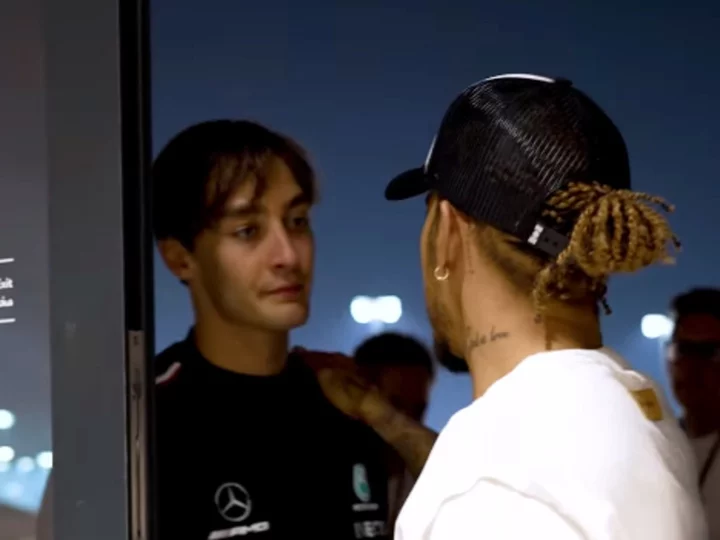
Lewis Hamilton apologises to George Russell after crash in Qatar: ‘It wasn’t your fault’
Lewis Hamilton apologised to George Russell and took full responsibility for their first lap crash at the Qatar Grand Prix on Sunday night. The Mercedes pair collided at the first turn of the first lap of the race, with Hamilton’s rear-right tyre clipping the front of Russell’s car. Hamilton, 38, spun off into the gravel and was forced to retire from the grand prix, while the incident also ruined Russell’s race as he dropped back to dead last. But while both immediately blamed each other on the team radio, Hamilton later admitted he was at fault and post-race spoke to Russell. In a video posted on Mercedes’ Instagram page, Hamilton is seen approaching Russell in the paddock and saying: “Sorry about today, it wasn’t your fault.” The pair quickly embrace, with Hamilton adding: “Great job.” Hamilton also posted on X/Twitter: “I’ve watched the replay and it was 100% my fault and I take full responsibility. Apologies to my team and to George.” Russell, despite intense humid conditions in Lusail, recovered over the next 57 laps to finish a respectable fourth. Hamilton added in his TV pen interview: “I just feel really sorry for the team, we had a chance today to get some good points. “Heat of the moment, I didn’t understand what happened but I don’t think George had anywhere to go. I’m happy to take responsibility for it. “It’s massively gutting to have a result like this. It’s very rare that this happens, I hope George is able to get back into the points.” Mercedes team principal Toto Wolff was absent from this race – his second in a row – as he recovers from knee surgery. But the Austrian came on the intercom in a move to calm Russell, 25, down shortly after the incident. “George, let’s race now, and get the best out of it,” he said. Max Verstappen won the race, with Oscar Piastri and Lando Norris securing another double podium for McLaren. Read More Lewis Hamilton reacts after first-corner collision with George Russell ‘I was passing out in the car’: Lance Stroll explains how Qatar heat took its toll ‘I was passing out in the car’: Lance Stroll explains how Qatar heat took its toll Lewis Hamilton and George Russell collide as Max Verstappen wins in Qatar Carlos Sainz misses Qatar Grand Prix in huge Ferrari blow
2023-10-09 17:15

Afghanistan’s Viral Supercar Makes Global Debut at Doha Show
At first glance, the Simurgh resembles the Batmobile. Black, low-slung with flared wheel arches, the supercar looks built
2023-10-09 16:25
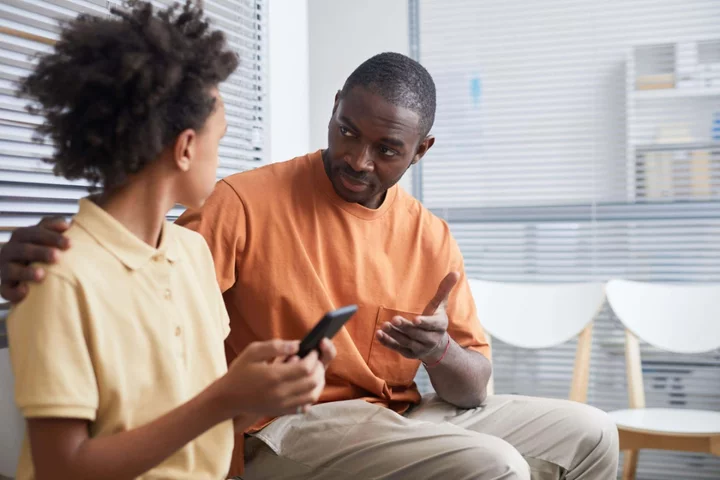
How to spot if your child is struggling with their mental health – and what to do next
Spotting when your child is struggling with their mental health, and knowing how to support them, can be tricky for parents and carers. It’s an important issue to be aware of, however. According to the Children’s Society, in the three years up to 2022, the likelihood of young people having a mental health problem increased by 50%, while children and young people’s mental health charity Place2Be says one in six children experience mental health difficulties, rising to one in four amongst 17–19-year-olds. Emotional disorders including depression and anxiety are among the most common problems to crop up. James Emmett, regional clinical lead at Place2Be, says although the Government has taken “great strides” to address the issue by introducing support teams and senior mental health leads in schools, “we’re still seeing a sharp increase in diagnosable mental health conditions among children and young people, now affecting one in six children – which is around five in every classroom”. Stevie Goulding, senior manager for parents and carers services at the charity YoungMinds, says: “More young people than ever are struggling with their mental health and are in need of support. This generation is facing a unique set of pressures – living through a pandemic, a cost-of-living crisis and ongoing global instability – and they’re worried about their future. “As young people navigate the ups and downs of growing up, recognising when to be concerned about your child’s mental health can be difficult.” Here, Goulding and Emmett outline how parents can spot whether their child may be struggling, and how to help… 1. Look for behaviour changes A change in behaviour is usually the first sign that a child or young person is feeling low, says Emmett: “They may eat too much or not enough, have problems sleeping, or stop doing things they normally enjoy.” Goulding adds: “If you notice changes in your child’s behaviour or if they appear persistently distressed, it could mean they’re struggling with their mental health, and it’s important to take their concerns seriously.” 2. Give them the opportunity to talk Goulding suggests parents try to talk to their child or teen about how they’re feeling in a non-judgemental way. “Remember, they might not want to open up at first, so reassure them you’re there for them when they’re ready to talk. Remind them it’s ok for them to feel scared or unsure, and try to reassure them,” she advises. 3. Don’t force them to talk However, Emmett says sometimes they may not want to talk, adding: “It’s important that adults don’t force them to have a conversation they don’t want to have. Parents and carers must make sure they’re available – but don’t pressure them to talk. “It can be really tempting to ask a lot of questions, but it’s easy to slip into interrogation mode. Try to focus on the here and now and what would help moving forward.” 4. Choose your momentAvoid discussing the underlying causes of your child’s distress with them during intense moments, Goulding advises: “While it’s crucial to provide support, it can be more beneficial to address these topics when they’re feeling calmer.” 5. Ask how they’re feeling Ask if your child notices when they feel more or less sad, for example, at school, or when they’re with their friends and family, suggests Emmett. “Responding sensitively to your child’s signals with concern and interest will help them learn you’re there for them,” he notes. Goulding says parents can acknowledge their child’s feelings by saying something like: ‘It’s completely understandable that you’re feeling…’. She explains: “This helps to reassure them their feelings are valid and it’s ok to feel different emotions.” 6. Remind them of obstacles they’ve overcome in the past When a child or young person gets overwhelmed, they forget just how much they’ve already dealt with in their lives. “Tell them stories about how proud you were when they coped with certain moments in their life, such as an sitting an exam, or moving house,” says Emmett. “This will remind them of their resilience – their ability to adapt to difficult situations.” 7. Encourage them to stay active Physical and mental wellbeing are often linked. “This means doing something active can be a great way to boost your child’s mental health, and heading outside into green space can have even greater benefits,” says Emmett. He suggests parents walk or cycle short distances with their child instead of going in a car: “It’s cheaper and will help the planet to be healthier too.” 8. Model positive relationships Happy relationships between parents and significant adults lead to better mental and physical health for everyone, stresses Emmett. “By modelling positive relationships of your own, you can help your child to see what positive, healthy and meaningful relationships should look like – and to recognise when friendships aren’t positive,” he says. 9. Remind them how they feel will change Your child might not be able to see the light at the end of the dark tunnel they’re in. “Reassure your child that how they’re feeling is temporary,” says Goulding. “Things can change and they can feel better.” 10. Discuss what help is available Talk to your child about the different sources of help that are available, such as helplines, text lines and online chat services. “Reassure them it’s alright to confide in others, as young people often worry about upsetting their parents,” says Goulding. As well as YoungMinds parents’ helpline (0808 802 5544) and Place2Be, other sources include your child’s school, which will have a designated senior mental health lead, your GP who can refer your child to CAMHS, Parenting Smart, which provides free advice for parents and carers of 4–11-year-olds on how to support their child’s wellbeing and behaviour, and the free Shout 24/7 textline for anyone in crisis (text SHOUT to 85258). Read More Does your pillowcase make a difference to your skin and hair health? Sarah Jessica Parker channels Carrie Bradshaw on the red carpet in mismatched shoes Does your pillowcase make a difference to your skin and hair health? As transphobic hate crimes rise by 11% in a year, how to be a better ally Impact of relationships with AI chatbot programmes ‘worrying’, psychologist says Pokemon’s Detective Pikachu Returns and more top games of the week
2023-10-09 14:47

American Airlines Union Tells Pilots to Refuse to Fly to Israel
The head of American Airlines Group Inc.’s pilots union said members shouldn’t fly to Israel until it is
2023-10-09 13:54
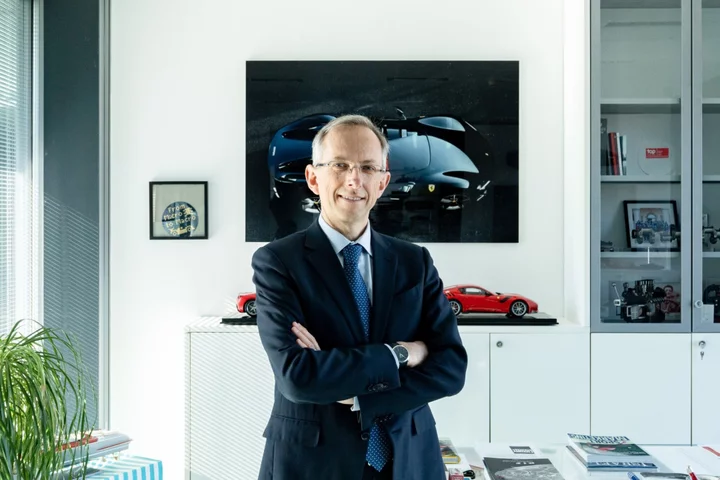
Ferrari Boss Takes Prototype of Debut Electric Model for a Spin
Ferrari NV’s first fully electric model will be one of the most highly anticipated products in automotive history,
2023-10-09 12:57

What to stream this week: Jamie Foxx, Offset, Musk, 'Frasier' returns and Nicholas Cage as a vampire
This week’s new entertainment releases include Offset’s sophomore solo album, the return of “Frasier” starring Kelsey Grammer, and Jamie Foxx and Tommy Lee Jones leading the crowd-pleasing courtroom drama “The Burial."
2023-10-09 12:27

Schools' pandemic spending boosted tech companies. Did it help US students?
An infusion of federal pandemic relief to America's schools sparked a boom in the education technology sector, an industry where research and evidence are scarce
2023-10-09 12:27
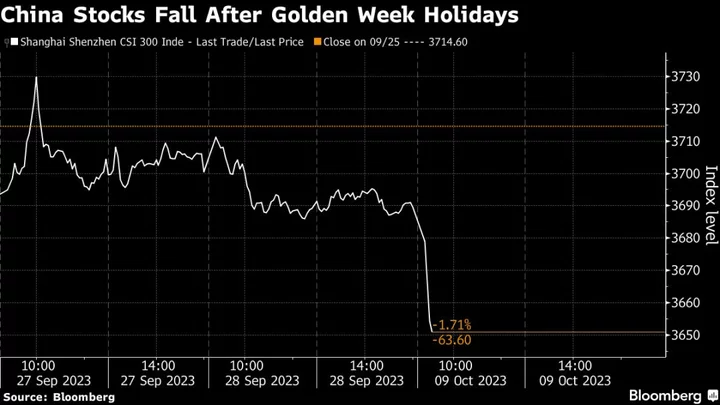
China Stocks Slide as Traders Return From Golden Week Break
Chinese stocks fell as traders returned from the Golden Week holidays, with tourism data trailing some expectations and
2023-10-09 10:45
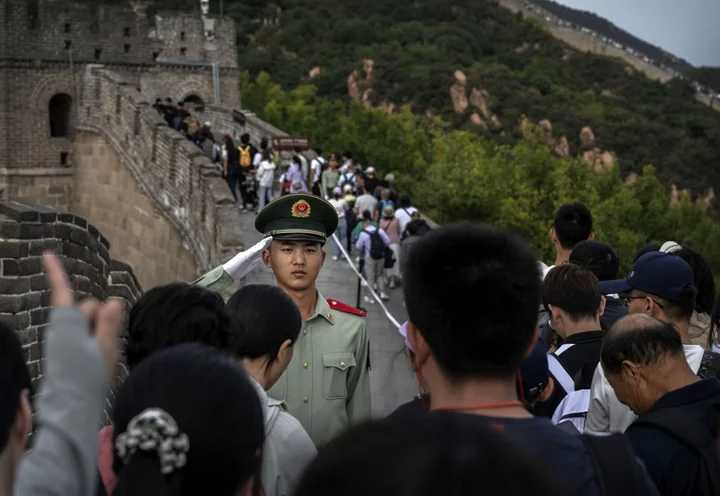
China Holiday Data Show Slower-Than-Expected Economic Rebound
Spending and travel over China’s Golden Week holiday undershot official expectations for growth, adding pressure on policymakers to
2023-10-09 09:58

Israel Latest: Over 1,100 Dead; Oil Soars on Fears of Proxy War
The combined death toll from the Hamas attack on southern Israel has climbed to more than 1,100 as
2023-10-09 09:23
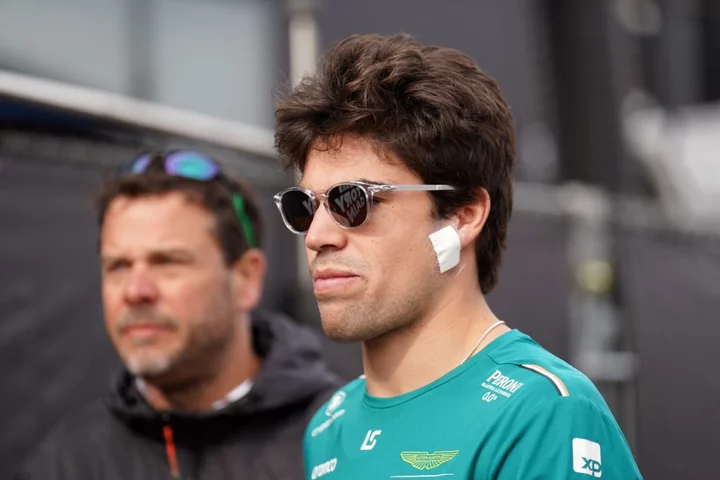
‘I was passing out in the car’ says Lance Stroll as Qatar heat takes its toll
Lance Stroll claimed he passed out at the wheel of his Aston Martin because of the extreme humidity in Sunday’s Qatar Grand Prix. American rookie Logan Sargeant was forced to retire through illness, French driver Esteban Ocon said he vomited in his cockpit, while London-born Thai Alex Albon was taken to the medical centre with acute heat exposure as the grid’s drivers battled the intense conditions at the Lusail International Circuit. A statement from 27-year-old Albon’s Williams team read: “Following the Qatar Grand Prix, Alex was taken to the medical centre to be treated for acute heat exposure. He has now been assessed and cleared by the medical team.” Williams also revealed Sargeant, 22, had suffered from “intense dehydration” following “flu-like symptoms earlier in the week”. Aston Martin’s Stroll, 24, who fell over as he made his way to conduct his media duties, said: “I was passing out in the car. “They painted the kerbs and made the track narrower but you can’t feel the kerbs. I couldn’t see where I was going because I was passing out. I was fading in and out. The temperature was too much.” George Russell, who finished fourth following a first-lap collision with Mercedes team-mate Lewis Hamilton, also revealed he felt ill throughout Sunday’s 57-lap Grand Prix. I was passing out in the car Lance Stroll The 25-year-old said: “It was an absolutely brutal race and by far the most physical race I have ever experienced. “I felt close to fainting in that race and I have never experienced anything like it before. “I wasn’t physically sick in the car but I felt ill. I had to ask my engineer to give me encouragement to take my mind off of it.” This was only the second staging of the Qatar race and the first of a 10-year deal. Next year’s edition will be held two months later in December when it is expected to be cooler. Read More Lewis Hamilton and George Russell vent anger on radio after collision in Qatar Lewis Hamilton crashes out after first-corner collision with George Russell In his own words: Christian Horner on world champion Max Verstappen Angry Lance Stroll shoves personal trainer and storms out of interview Max Verstappen fastest in Qatar practice as he closes in on world championship Fernando Alonso lauds Max Verstappen as best F1 driver since Michael Schumacher
2023-10-09 04:50
